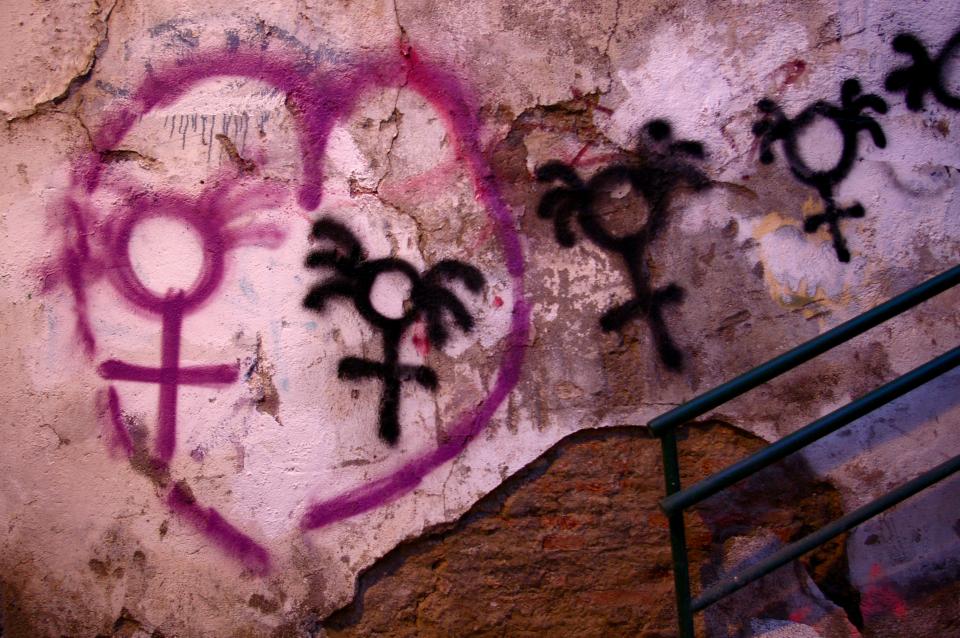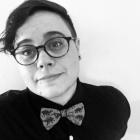
We recently published an article in The IDS Bulletin, The Digital Age: A Feminist Future for the Queer African Woman. What follows is an abridged version of the paper with key points and reflections highlighted. The full copy can be accessed here.
The article draws attention to digital communities and how they afford the queer African woman the space to express her lived experience. It also speaks to how digital communities create the space for her to engage with local and global politics in a manner that could serve to act as a counter public. The paper utilised HOLAA! as a case study to provide evidence and to discuss how digital spaces have made a feminist future for the queer African woman possible.
For the purposes of the paper, we defined a feminist future to be one where queer African woman:
1. Can speak of their experiences and their desires without fear of persecution or violence;
2. Are protected by the law and the criminal justice system;
3. Are able to seek out health care without fear of discrimination;
4. Have access to resources and knowledge that will improve their quality of life;
5. Can govern their bodies and have autonomy over their sexuality;
6. Can contribute to public life and social progress without making invisible their sexuality.
It is only within this future that the rights of queer women can be protected on the international and national level as the conversations that fight erasure, exclusion and the denial of rights occur.
The digital space makes it possible for voices to be heard and viewed publicly, voices which may not have been present in the public sphere prior to the existence of social networking sites, such as Facebook (Goby 2003). The internet and its platforms allow people to be exposed to viewpoints that are not their own and to be held accountable for the values they espouse, as well as have these challenged, publicly, this makes for a richer public sphere (McLean 2014, 2013; Nip 2004).
Case study: HOLAA!
Marginalised communities, such as queer communities, find the internet a safer space for communication and identity formation. This is especially acute within the African context where many find offline spaces sparse, hostile and in some cases dangerous. HOLAA! seeks to add to these safe spaces on the continent, and in doing so can be considered as providing space for the formation of counter publics, and a counter public in and of itself.
HOLAA! provides five categories on the site which seek to create a hub within which various spaces are created to guide the online content in terms of how it adds to the general conversation. The categories are: Gender and Identity, Culture and Religion (Queerly cultural, queerly spiritual), Sex and relationships, Afro Queer Politics and Afro Queer Wisdom.Through the posting of various articles the site has hosted material that seeks to cover an array of topics with all this material having been produced by those within the community.
This is a key element to the way in which this particular platform functions. From issues pertaining to sexual health to socio-economic issues, fringe issues are tackled and debated in the voices of those who occupy these ‘fringe spaces’. They are outlined in a way that allows for others within these spaces to identify and thus engage with the various matters. People are able to come to the fore and speak on everything from the political to the social and everyday. Subsequently those who submit content and those who see the submissions are able to carve out a space through a sense of engagement with what they deem important to them in a way they choose.
The act of chronicling alternative experiences from around the continent and creating a counter public through doing this creates a sense of empowerment and embodiment not only for those producing the content but also consuming it. This creation can be utilised as a basis on which one can seemingly ‘carve out an existence’ in the greater conversation rather than being confined to the fringes. HOLAA! is one of many online platforms, that has carved out a space that allows for more voices to tell their stories, to reconstruct the narrative of queer lived experiences and to expand the margins.
Reflection
The internet and the manner in which it is used can create spaces for queer women to express themselves and to seek out other queer women. This, seeking out of like identities may enable queer women to share stories of their lived experiences, to build on a shared narrative, to build community and to empower people to speak collectively. This further allows for knowledge sharing and knowledge production from within the community, not without, in a way that sees knowledge being created and not imposed upon queer identities.
In society where queer identities have been rendered invisible and are policed into silence through persecution, there is very little intergenerational knowledge sharing. The internet allows for the archiving of content and what becomes a historical telling and collection of narratives which may be passed on from one generation of queer women to the next so that future generations of queer women may not feel that they are the only ones carving out an identity. Knowing that they are not alone and that there are other queer women is an emboldening moment.
Queer women, especially in Africa, may find that their stories are underrepresented and when they are spoken of, it is through one major narrative, that of homophobia and, specifically, corrective rape. This needs to begin to shift towards more positive and accurate representations and narratives of queer women that will allow queer African women to take control of the narrative. This can aid in the reshaping of how queer African women are viewed, read and understood by queer African women, their communities, their governments and the international community. This, in essence, forms part of a larger project to counter the narratives that come out of the continent that are primarily written by those removed from the experiences of the continent. This begins the work of leveling the ground for better engagement between the global north and the global south.
Geographic spaces do not always facilitate the meeting of queer women because of social, political and government responses to homosexuality and queer desire. Geographic spaces are more often than not unsafe for queer bodies to navigate, let alone gather in. Because of social and political circumstances, the digital environment can provide a shelter and safe space for identities to re-energise, collaborate and gather in such as the HOLAA! site and social media communities.
In a society where queer identities are persecuted, ignored or made invisible, queer African women may increasingly turn to digital spaces to seek out a feminist future for themselves and the ones who will follow. Digital feminist spaces may provide the platform needed to provide the queer African women with: the arena to speak of their experiences and their desires without fear of persecution or violence; protection from homophobic laws and criminal justice systems; the ability to seek out health care and information without the fear of discrimination; access to resource and knowledge that will improve their quality of life; where they can mobilize to govern their bodies and have autonomy over their sexuality; and where they can begin to contribute to public life and social progress without making their sexual and queer identities invisible.
There is a need for national and international documentation, such as policies, to explicitly include queer women in consultations and in the content. This inclusion should not be a simple ‘token’ or obligatory mention but rather an explicit inclusion in order to address issues that are specific to queer identities.
Concluding remarks
Although online spaces are increasingly becoming available, there is still a long way to go in terms of creating an extensive online space for African queer women. Looking towards other online spaces such as those within the United States which is populated by vlogs, blogs, many prominent social media users on a whole host of platforms the African queer female space is very much in its infancy. Although conversations about African queer women’s issues are beginning to take place online, coupled with an increase in activity, there is still the space for many more players and many more voices.
Digital spaces have the potential to link the array of actors currently working on similar issues in silos, separated by location and other barriers. The need to connect and to see that ‘I am not the only one’ is a common theme amongst current occupiers within this space. There is a need to connect with those who you feel are ‘just like you’, be it through passive or active engagement with one another. Platforms such as blogs, Twitter and Facebook play a pivotal role in bringing queer African women together.
While the internet provides the spaces for necessary and alternative queer digital spaces, it also provides communities and governments with the tools to monitor counter publics. As the internet develops and governments become aware of online activity and the role it plays in governance, we may find that digital spaces may increasingly become policed and politicised. Queer women and other marginalised identities will need to take into consideration their digital security and protection of personal information, particularly in light of various anti-homosexuality laws within various African countries.
Image by gaelx
- 5376 views






Add new comment